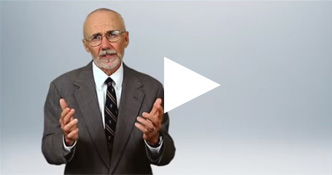Planned Giving: Do Not Forget To Ask
by William J. Moran, J.D., M.S.Ed.
Published in Fund Raising Management/May 1990
Planned giving is a special form of fund raising. It is different from capital campaigns and other such things. We planned giving people do not pretend to be better, just different. However, we must remember that however different we may feel, we are still fundraisers and that includes following that old maxim of being sure to ask for the gift.
First, why is planned giving fund raising unique?
Gifts of Assets
We are interested in gifts of assets as opposed to gifts from one’s income. Assets are the fruits of a life’s work and savings. When they are gifted they are generally substantial. On the other hand, they are not parted with casually by a donor.
Long-term Process
Because planned giving involves assets, these gifts take time – often years, to complete. An ultimate planned gift may happen only once in a donor’s lifetime and most frequently takes place only at death in the donor’s will or other estate planning. So unlike some other fund raising, we planned giving officers are in it for the long-term.
The Challenge of Closure
Because of this long process, we may never see a gift we help produce. Closure is difficult to achieve. Success, therefore, is hard to measure. Accountability is difficult. Where fund raising is normally a bottom-line occupation with easily discernable results, in planned giving there frequently is no bottom line, only a payoff in a seemingly obscure future.
Trust Relationship with Donors
Over a period of years, we engage in a process of creating relationships with donors. This long-term process leads to genuine relationships of friendship and trust with often elderly donors. We become, as Don Albertson of Abbott-Northwestern Hospital in Minneapolis would say, “trust officers”. Planned giving officers enter into an almost fiduciary relationship with these faithful friends. We like to say that the donor’s interests come first, even before those of the charity that we represent.
So, in truth, we are different than other fund raisers. But – if the long-term gift process prevents us from seeking closure; if close friendships with donors deter us from directly asking them to include us in their will; if low expectations for an immediate payoff allow us to get by without asking for a planned gift commitment – then we have failed in our objective: to raise money for our good cause.
I fear that this is what sometimes happens. Because of our unique circumstances, we planned giving people forget to ask for the gift. We sometimes allow a lack of bottom lines to let us off the hook to get commitments. Sometimes our superiors and board may be too understanding. They know we are building for the future. They accept our proposition that they must be patient and may see little return for five to ten years. We can go out and visit donors and no one expects us to bring anything back to the office in the way of a gift. No one expects immediate production. I believe that sometimes we lower ourselves to these lower expectations and forget that we are in the fundraising business. How can we prevent this from happening?
Create Bottom Lines by Having Goals
Put some pressure on yourself. If you have not done so, sit down with your CEO and set an annual goal of will expectancies drawn up or life income agreements established. Twenty bequest expectancies or life agreements generally represent hundreds of thousands of dollars.
Do the same for donor visits. We all know how important it is to get out of the office and see prospects. Set a target of several hundred donor contacts for the year.
Most Important: Do Not Forget to Ask
Granted, on most calls we are strengthening friendships, not asking for anything. But do not let “asking” get out of your system. Set a goal that you will make two “asks” per week. This may be a request to include your institution in the donor’s will, to join your heritage society, to consider a gift annuity or a trust, or to join the pooled income fund. But ask and ask consistently so you do not forget. You will not only find that your numbers add up for your institution, but you will regain the excitement and satisfaction that comes with true fund raising.
Bill Moran, The Moran Company, specializes in nonprofit executive searches
for executive directors, fundraising staff and other top nonprofit leadership.
www.MoranCompany.com
© 2008 The Moran Company
www.MoranCompany.com
“We find great nonprofit executives”
Posted in Fundraising Articles
Subscribe
Join more than 10,000 nonprofit professionals, community leaders and board members who receive e-mail updates from The Moran Company.






